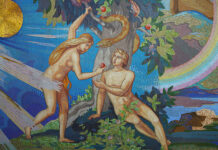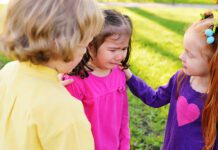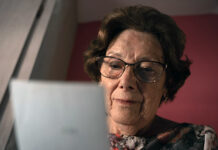Two recent TED talks shed some interesting light on a couple of fascinating questions: when does learning begin, and what do babies think?
The answers given by both speakers present new scientific findings that not only run contrary to common sense but present conclusive evidence that the inner-life of babies is far more rich than we ever suspected, even 20 years ago, let alone 20 centuries ago!
LEARNING BEGINS…WITH THE FETUS
In the first talk, science writer Annie Murphy Paul presented details about all the many messages being sent to babies while they are still only fetuses.
The most interesting fact? That these messages are being received. And these messages we send that they receive are already forming the types of adults they will become! Amazing, isn’t it?
I recommend you watch the video, but a few examples will show you how important this period of development is.
The study of fetal origins, which emerged only a couple of decades ago, has found that life is deeply affected by the time spent in the womb.
This may not be news to some mothers, but a baby develops a preference for its mother’s voice while in the womb. What might surprise you, even you mothers, is that not only that, but babies have even displayed preference for certain sounds, such as theme songs of shows women watched regularly!
Also fascinating, babies will cry in the accent of their mothers’ tongue. So French babies end their cries with a rising tone while German babies descend. Again, how amazing that the mother and child are so connected even before birth!
And not only do babies show preference for sounds heard during their time in the womb, but they also display preference for the foods the mother eats while pregnant. The mother is literally teaching her child about her culture’s language and taste preferences before birth ever occurs.
Important to note is that babies can also be negatively affected by certain circumstances while in the womb.
Babies born to mothers who lived through what is known as the “Dutch Hunger winter” later displayed higher levels of obesity and heart problems.
Babies born to NYC mothers who were pregnant during the September 11 attacks showed affects of their mother’s post-traumatic syndrome, which was sometimes passed down to the child.
The findings of the study of fetal origins clearly show that we are learning about the world before we ever enter it, a fact that, to me, has important consequences that need to be seriously considered when thinking about getting pregnant. The choices we make have real connections to a real human being, so we must not take our responsibility lightly.
BABIES CONTINUE TO LEARN AFTER BIRTH
Of course, you probably already know how much children learn. But you may not have given much thought to how much they learn while they are still babies.
Allison Gopnik, whose studies I have mentioned here before, has explored the richness of the prolonged period of childhood that only we as human beings experience.
In fact, there is a direct relationship for all species between the length of childhood and the size of the species’ brains and the complexity of their intelligence.
Humans, of course, have the greatest of all intellectual capacities. Consequently, we have the longest childhood.
Where we went wrong in the past was assuming that babies are essentially empty, unfilled vessels that needed us to keep them alive until they were old enough to pour knowledge into.
We now know how profoundly wrong we were for centuries about babies’ capacities.
BROCCOLI VS GOLDFISH
One study by Gopnik wonderfully illustrates how much a baby can change in only a short three-month span of time.
She did a study comparing 15-month-olds to 18-month-olds in which the children were presented a bowl of broccoli and a bowl of delicious goldfish crackers. Of course, not surprisingly almost all children prefer the goldfish.
What interested Gopnik was whether children could understand that another human being had a different preference from theirs.
To test this, she would vary her response to trying out the different foods the children had been presented. Sometimes she would act as though she loved the goldfish but disliked the broccoli. Other times she would do exactly the opposite.
After clearly displaying her preference in front of the babies, she would ask them to give her some, not indicating which one she wanted.
Almost every time, the 15-month-olds would give her what they preferred, regardless of which one she had indicated she liked.
In contrast, the 18-month-olds almost always gave her what she professed to enjoy most, even if it was different from what they preferred.
BABIES AS SCIENTISTS
Again, how amazing are children? How incredible it is to see such a huge developmental milestone achieved in such a short period of time. And so universally, too.
What Gopnik found is that babies achieve these milestones in a similar way to how scientists work: by testing and retesting theory after theory.
This means they are not merely passively taking in knowledge that we pour into their young minds. Instead, they are forming ideas about the world and then seeing how accurate those ideas are.
Of course, they cannot put these ideas into words, even when they acquire language. But the process is happening nonetheless. So while they might not be able to explain all that they are thinking, it would be preposterous to conclude that that meant nothing of real importance is going on inside those brains.
In fact, Gopnik argues that it is the complete opposite: babies’ consciousness is expanded, the same way ours is when we are in a new environment or a new situation.
She makes the analogy like this: a baby’s consciousness would be like ours if we were in Paris for the first time and fell in love after taking five espresso shots!
My purpose in combining these two scientist’s findings is to again bring attention to the richness of childhood – not only when they start talking or when they are born – but far sooner. The unique journey of human life begins while still in the mother and has achieved more than we are even aware of still today before the first word is spoken or letter written.
Childhood is a time unlike any other, and so we must protect it and allow it to last as long as it needs to develop fully its beautiful richness.
Psalm 139:13-17 says, “For you created my inmost being; you knit me together in my mother’s womb. I praise you because I am fearfully and wonderfully made; your works are wonderful, I know that full well. My frame was not hidden from you when I was made in the secret place, when I was woven together in the depths of the earth. Your eyes saw my unformed body; all the days ordined for me were written in your book before one of them came to be.”








